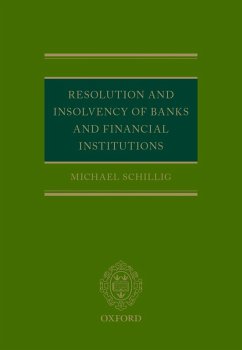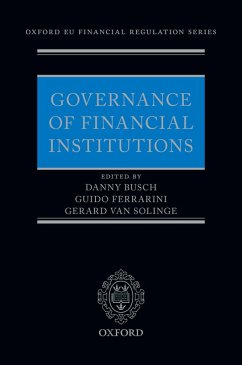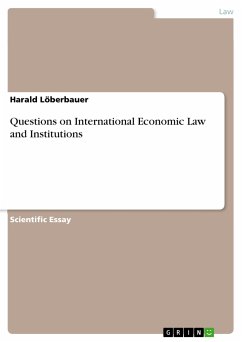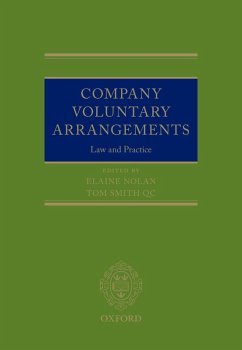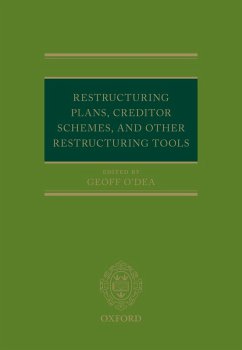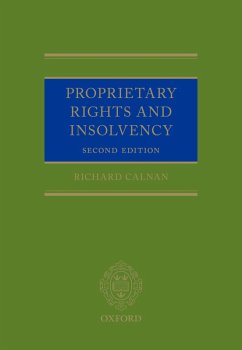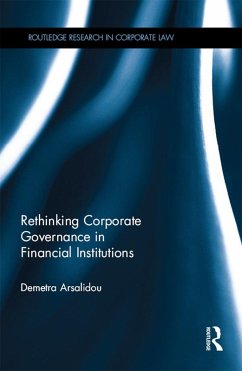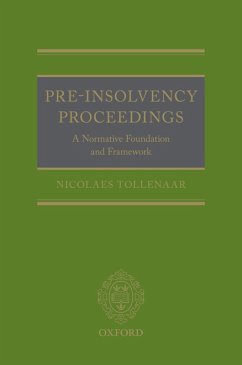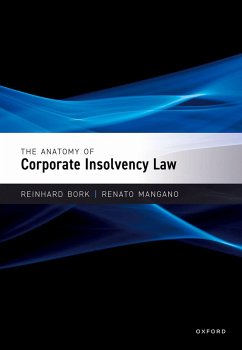
Financial Institutions in Distress (eBook, ePUB)
Recovery, Resolution, and Recognition
Versandkostenfrei!
Sofort per Download lieferbar
96,95 €
inkl. MwSt.
Weitere Ausgaben:

PAYBACK Punkte
48 °P sammeln!
Political boundaries are often porous to finance, financial intermediation, and financial distress. Yet they are highly impervious to financial regulation. When inhabitants of a country suffering a deficit of purchasing power are able to access and deploy funds flowing in from a country with a surfeit of such power, the inhabitants of both countries may benefit. They may also benefit when institutions undertaking such cross-border financial intermediation experience economies of scale and are able to innovate and to offer funds and services at lower costs. Inevitably, however, at least some su...
Political boundaries are often porous to finance, financial intermediation, and financial distress. Yet they are highly impervious to financial regulation. When inhabitants of a country suffering a deficit of purchasing power are able to access and deploy funds flowing in from a country with a surfeit of such power, the inhabitants of both countries may benefit. They may also benefit when institutions undertaking such cross-border financial intermediation experience economies of scale and are able to innovate and to offer funds and services at lower costs. Inevitably, however, at least some such institutions will sometimes act imprudently, some of the projects in which such funds are deployed may be unwise, and other such projects can suffer from unforeseen circumstances. As a result of such factors, a financial institution may suffer distress in one country, and may then transmit such distress to other countries in which it operates. The efficacy of any response to such cross-border transmission of distress may turn on the response being given due effect in both (or all) the territories in which the distressed financial institution operates. This situation creates a conundrum for policymakers, legislators, and regulators who wish to enable those subject to their jurisdiction to access the benefits of cross-border financial intermediation, yet cannot make rules and regulations that would have effect outside that jurisdiction. This book explores this conundrum and offers a response. It does so by drawing on and adding to the literatures on financial intermediation, regulation, and distress, and on existing hard and soft laws and regulations. The book advocates for the creation of a model law that would address the full range of financial institutions, including insurance companies, and that would enable relevant authorities to cooperate with counterparts in advance of the onset of distress and to give appropriate effect in their jurisdiction to measures taken by counterpart authorities in other jurisdictions in which the distressed institution also operates.
Dieser Download kann aus rechtlichen Gründen nur mit Rechnungsadresse in A, B, BG, CY, CZ, D, DK, EW, E, FIN, F, GR, HR, H, IRL, I, LT, L, LR, M, NL, PL, P, R, S, SLO, SK ausgeliefert werden.




